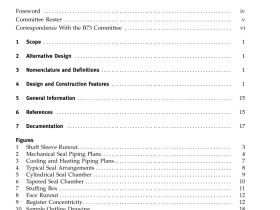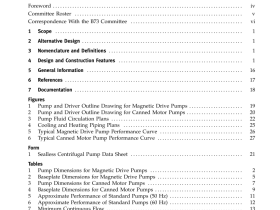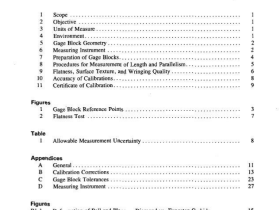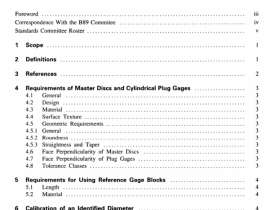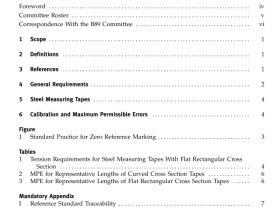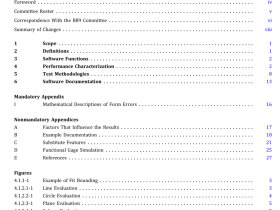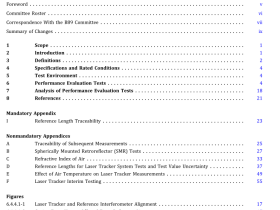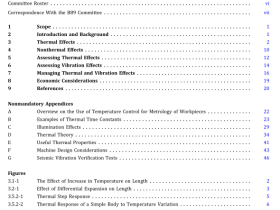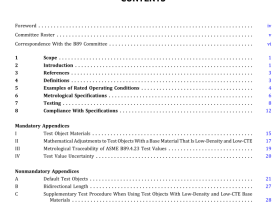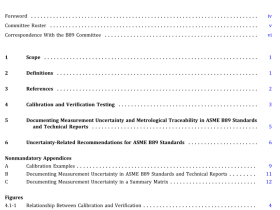ASME B18-12 pdf download
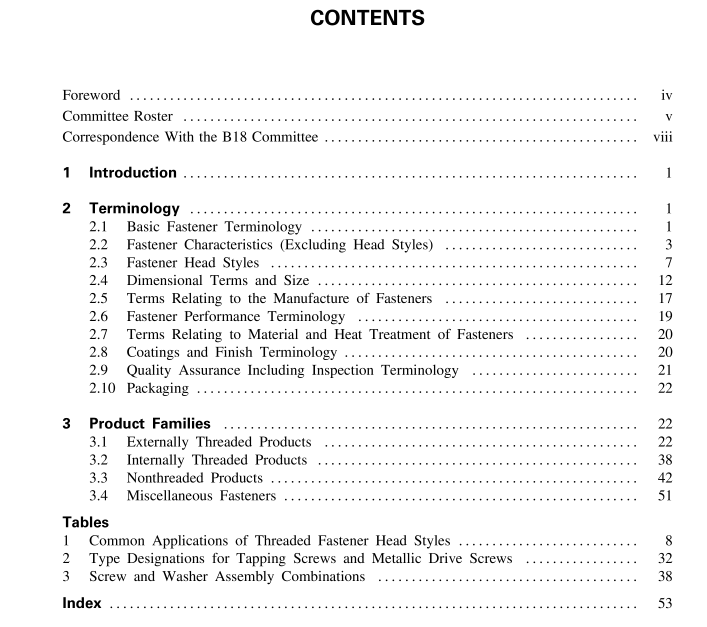
ASME B18-12 pdf download GLOSSARY OF TERMS FOR MECHANICAL FASTENERS
These fasteners usually have a tensile strength in excess of 120,000 psi.
2.1.7 lockpins and collars: a headed and externally grooved mechanical device designed for insertion through holes in assembled parts. A cylindrical collar is swaged into the external groove as the lock pin is hydraulically tensioned. Collars are either smooth bored or may contain a fit-tab. An optional flange provides a built-in washer.
2.1.8 mechanical properties: identify the reaction of a fastener to applied loads. Rarely are the mechanical properties of the fastener those of the raw material from which it was made. Properties such as tensile and yield strengths, hardness, and ductility will vary widely, depending upon choice of manufacturing meth- ods and metallurgical treatments.
2.1.9 modified standard: a part that is standard with one or more of its features or characteristics slightly changed. Such a part is normally ordered to a customer’s print is used by that customer in a particular application, but the part is such that any interested manufacturer can produce it.
2.1.10 nonstandard fastener or special fastener: a fastener that differs in size, length, configuration, material, or finish from established and published standards.
2.1.11 physical properties: inherent in the raw material and remain unchanged, or with only slight alteration in the fastener following manufacture. Such properties are density, thermal conductivity, and magnetic suscepti- bility.
2.1.12 Part Identifying Number (PIN): a 21-character code that identifies an ASME B18 manufactured product by specific characteristic fields such as fastener family identification, B18 standard identification, fastener style or type, thread series, nominal diameter, nominal length or dimensional/other characteristics, material and treat- ment, plating, coating, and passivation and special features relevant to the fastener product.
2.1.13 precision fastener: manufactured to close dimensional and geometric tolerances.
2.1.14 proof load: a tensile load that the fastener must support without evidence of permanent deformation. Proof load is an absolute value, not a maximum or minimum value. For most carbon or alloy steel fastener strength grades or property classes, proof loads are established at approximately 90 to 93% of the expected minimum yield strength. Proof loads are frequently used as design values in joint analysis and fastener selection.
2.1.15 proof test: a form of tensile test where the maximum load applied is the proof load value in the applicable specification.
2.1.16 fastener quality: the accuracy of manufacture of the fastener such that it conforms to its specified tolerances, limits, and requirements.
2.1.17 aircraft/aerospace fastener: intended for use in a flying vehicle.
2.1.18 fit: the amount of clearance or interference between mating parts.
2.1.19 shear fastener: a fastener whose primary function is to resist forces applied at a right angle to the fastener axis that tend to shear it.
2.1.20 standard fastener: can be described from nationally recognized consensus standards documents and may be produced by any interested manufacturing facility.
